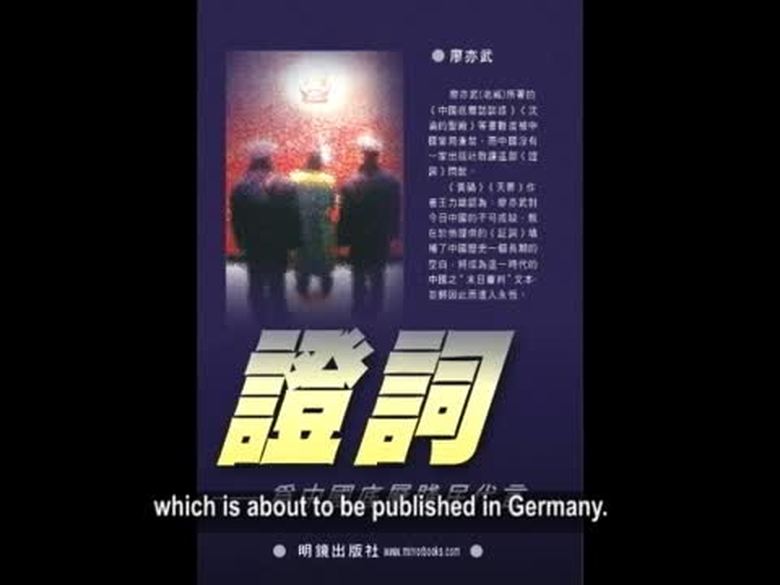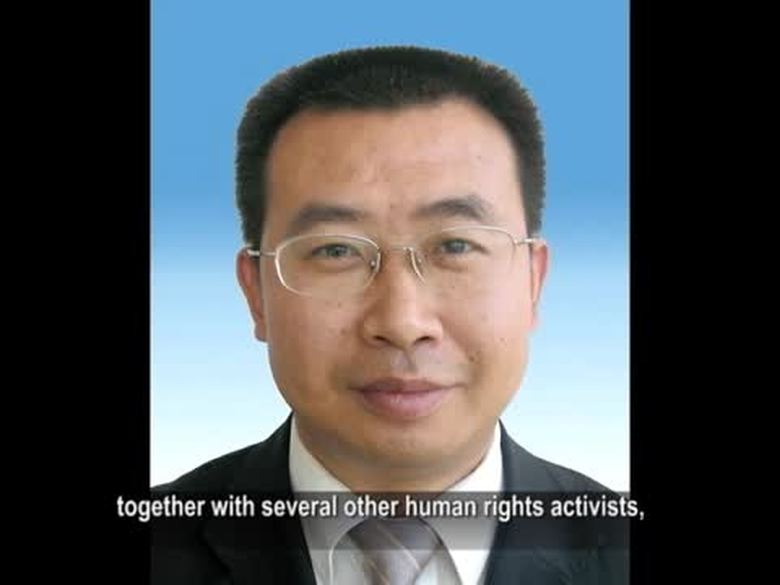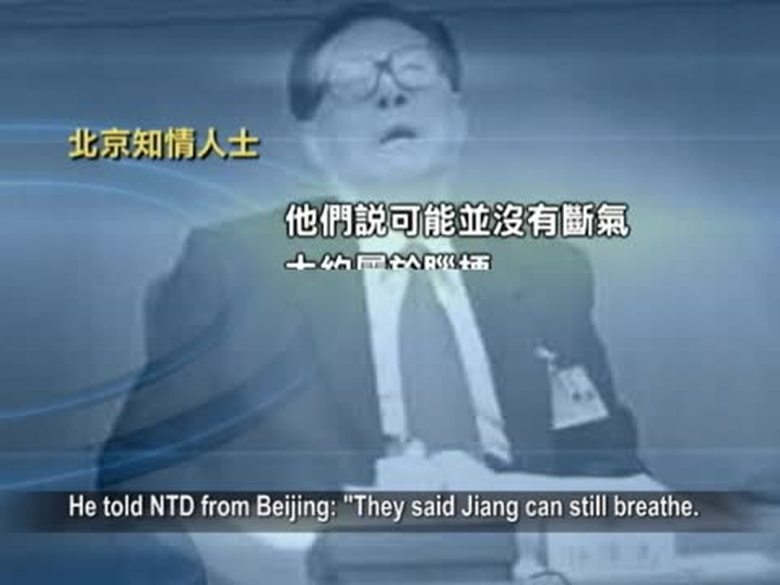【新唐人2011年7月5日訊】在全球金融危機的衝擊下,中共政府越來越多的介入經濟,導致經濟陷入“國(企)進 民(營)退”的格局。經濟專家們認為,這種政府介入越來越多的模式導致的繁榮,無法持久。同時,中國目前的情況:擴大借貸、不受控制的通貨膨脹,以及觸動人們神經的官員腐敗,跟「六四」當年十分相似。
在全球金融危機的衝擊下,中共一直高喊著經濟增長“保八”,加強了政府介入,在產業發展、人民幣匯率等方面都強加控管。似乎顯示出由政府領導,使用“政策工具”(policy tools)的中國模式,比市場經濟模式優秀。
但是,經濟學家芧於軾認為,目前中國經濟因為陷入“國(企)進 民(營)退”的格局,政府配置越來越多,導致市場在縮小。
芧於軾:﹝錄音﹞ “當前來講,我覺得中國經濟比較成問題的,就是政府控制的資源越來越多,違背了『市場配置資源』的這樣一個原則,中國經濟的效率在降低,壟斷在加強,經濟結構的扭曲越來越難處理。”
為應對經濟危機,中共當局出臺了「十大產業振興規劃」和「4萬億經濟刺激方案」。在這些計劃中,許多政策明顯的向「國有企業」傾斜。
經濟時政評論家,兼美國亞太人權基金會執行長草庵居士也表示,『國進民退』反映了中國政治體制和經濟體制的扭曲。
草庵居士:“因為經濟自由發展呢,是希望民間的經濟發展,但是因為中國的獨裁政府,政府在制定政策上,包括在經濟利益上都有個傾斜,它傾斜於這個獨裁的政權,獨裁的統治。所以這必然造成一個,國有的經濟在政府的掌握之下,得到政府的袒護和被扶持,民間的經濟就會備受壓制。”
草庵居士還認為,中共名義上實行自由經濟,但是政治上實行一黨專政,兩者間的扭曲,未來將會產生問題。
草庵居士:“在這種制度下,必然會導致通貨膨脹。這種情況就是和六四時期有一個相似。六四的時候,民怨主要是集中在一個反腐敗上面,但現在已經腐敗在中國成為一個常態了。在這種情況下民眾內心的反抗,事實上比六四的時候更加激烈。”
清華大學經濟管理學院教授程致宇(Patrick Chovanec)也指出,目前中國的情況跟六四之前有些相似,他向《美國之音》說:“在1980年代中,先有一波借貸風潮,接著而來的就是通貨膨脹的高峰。”他還表示:“當年跟我們現在所見的是一樣的,就是擴大借貸,不受控制的通貨膨脹,以及觸動人們神經的官員腐敗。”
程致宇教授曾經擔任美國眾議院議長貝納(John Boehner) 的幕僚。他還表示,現在中共政府擔憂,如果經濟發展慢下來,民怨將會爆發,所以集全國之力追求GDP成長,並且政府過深的介入經濟,形成「國進民退」。程致宇教授認為:“中國就像在一輛高速前進的火車上頭,騎虎難下。”
程致宇教授分析,中共政府錯過了讓經濟「軟著陸」的最佳時機,目前中共政府看起來仍將持續相同的刺激經濟政策,而習近平在接班的第一年恐怕不敢讓經濟成長放緩,所以將造成更多的壞帳、更多通貨膨脹。到時候經濟上、政治上都無法得到滿足,中國人民的怨氣將更加高漲。
新唐人記者周玉林、尚燕、周昕屹採訪報導。
Tiananmen Movement May Recur
Due to the global financial crisis』s impact,
the Chinese government is increasingly intervening
in the economy, resulting in the situation of
“the advancing state and the retreating private sector”.
Experts think that this would lead a state of prosperity
that cannot be sustained in the long run.
Currently, China is facing lending expansion,
uncontrollable inflation and disturbing corruption,
very similar to the days before Tiananmen Movement.
The Chinese government has been stressing to
“keep the economic growth rate at 8%”.
It strengthened intervention in industrial development
and increased control over RMB exchange rate.
It appears that the government-led Chinese model,
using “policy tools”, is better than the market economy.
Economist Mao Yushi believes that China now faces
“an advancing state and a retreating private sector”.
The government has increasing resources,
which resulted in a retreating private sector.
Mao Yushi: I think Chinese economy is problematic.
Authorities control an increasing amount of resources,
contrary to "resource allocation by market”.
China's economic efficiency is in decline
with an increasingly distorted economic structure.
In response to the economic crisis,
the authorities issued "Ten Industry Promotion Plans"
and "RMB 4 trillion economic stimulus package".
Many of the policies favor state-owned enterprises.
Economic and current affairs critic Caoan Jushi said,
this situation reflects the distortions of
China's political system and economic system.
Caoan Jushi: Free economic development favors
the economic development of the private sector.
However, due to China's authoritarian government,
its policies are biased for the dictatorial regime.
Inevitably, this leads to the state-owned companies
enjoying the governmental support,
with the private sector being highly suppressed.
He believes that China』s free economy is nominal,
as the nation is under one-party rule.
This situation will create future problems.
Caoan Jushi: This system inevitably leads to inflation.
This is similar to the days before June 4th Movement.
At that time, the people』s rancor was about corruption.
However, corruption is now a norm in China. Therefore,
the resistance in people』s minds is more fierce.
Tsinghua University Professor Patrick Chovanec said
the current situation is similar to the situation in 1989.
He told Voice of America, “In the 1980s,
there was a wave of lending,
then came a wave of inflation.
The current situation is similar.”
Professor Chovanec was a staff member of
former U.S. House Speaker John Boehner.
He said that the Chinese government is worried that
if the economic growth slows down,
people』s rancor will explode. Therefore,
it uses the entire nation』s power to pursue GDP growth.
He said, "China is like riding on a high-speed train,
and it is very difficult to get down”.
Chovanec analyzed that the government missed
the best opportunity for an economic "soft landing”.
The government is likely to continue
the current policy of economic stimulation.
After taking off the presidency, Xi Jinpin will not allow
the economic growth to slow down.
The Chinese people's grievances will be increased.
NTD reporters Zhou Yulin ,Shang Yan and Zhou Xinyi
看下一集

【禁聞論壇】何時將毛澤東像摘下來?

【禁聞】新疆七五2週年 北京高壓世維警告

【禁聞】傳中投收購“臉書”股權 各方揣測

【禁聞】中共在野期言論驚人 歷史揭真面目

【禁聞】“輸血愛滋病”受害者 闖北京會議

【禁聞】近七成中國人抱怨物價 專家解讀

【中國禁聞】《建黨偉業》傳“偷票房”

【禁聞】日媒剖析京滬高鐵真相

【禁言博客】安徽最牛零分高考作文

【禁聞】亞視稱江澤民病死 網民慶 中共封網

【禁聞】追查國際﹕中國統促會是中共機構

【禁聞】百姓參選遭官府暴力 律師呼籲監察

【禁聞論壇】中國高速鐵路慢下來

【禁聞】一個不評論時事的政治作家

【禁聞】李天天再遭綁架 維權律師倍受打壓

【禁聞】消息人士稱江澤民腦死亡 官方沉默








